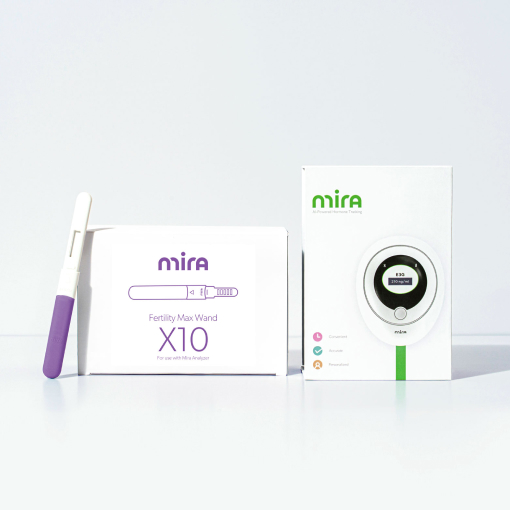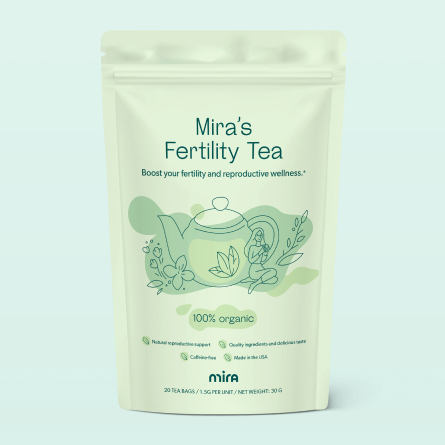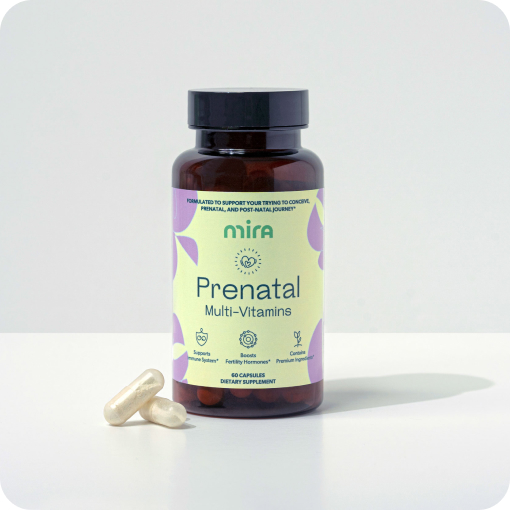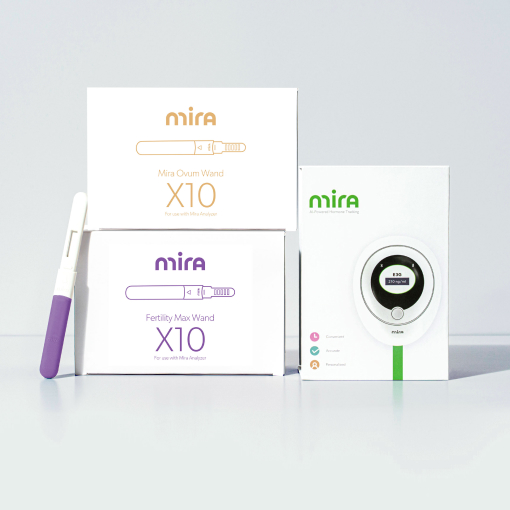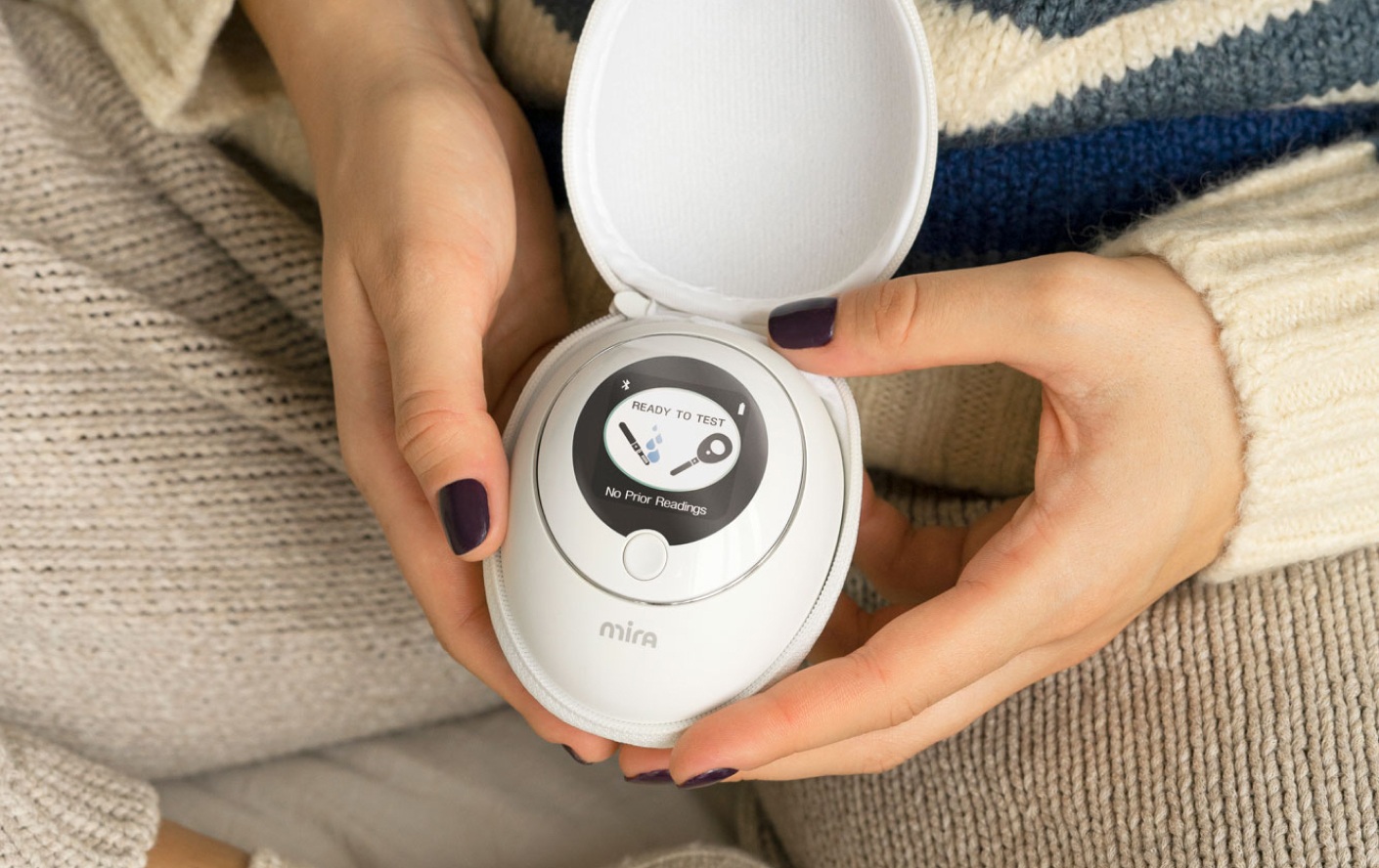Prenatal Vitamins for Hair and Nail Growth
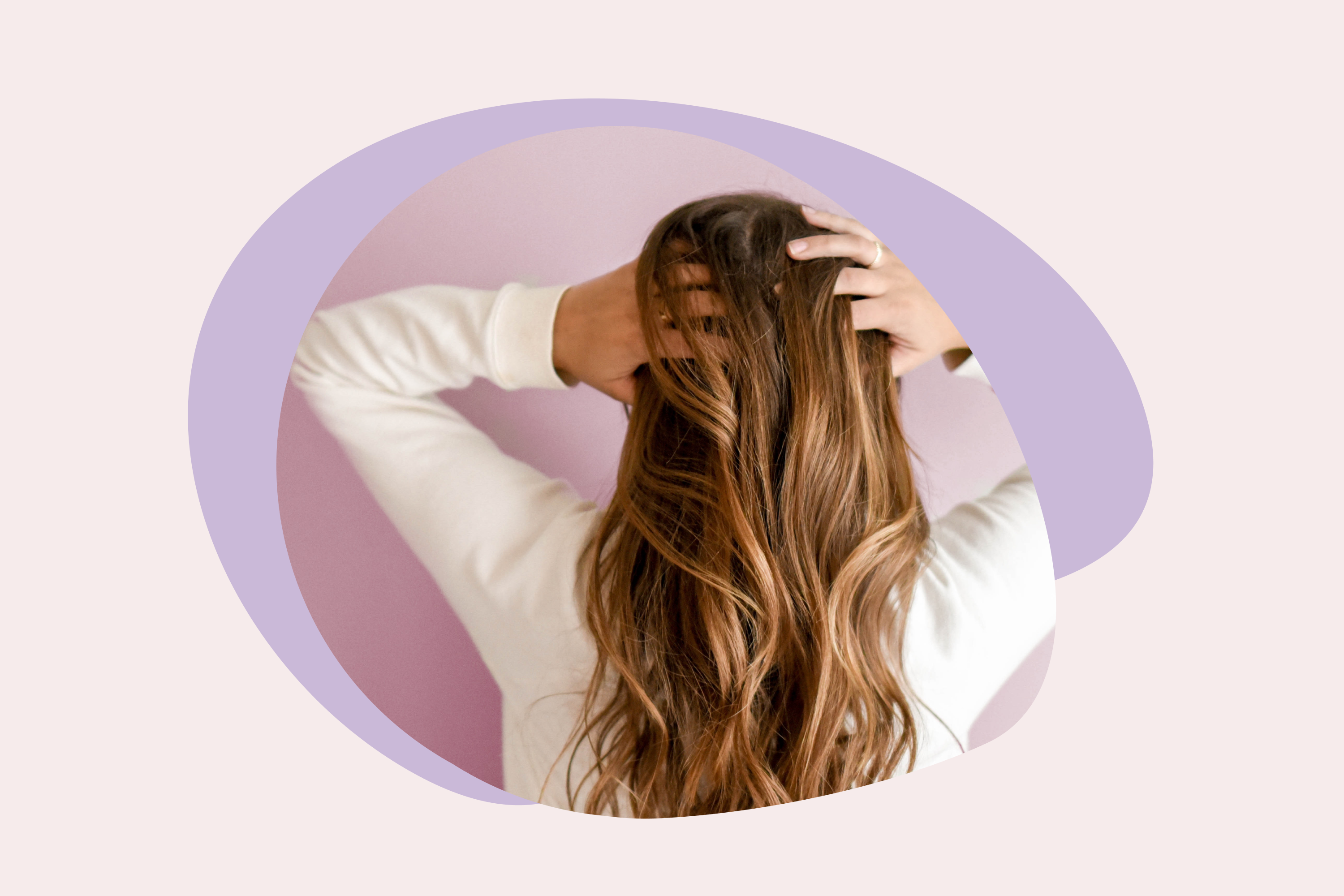
Prenatal vitamins are formulated to support healthy fetal development. So why is it common to hear advice like, “You should start taking prenatal vitamins, they’ll help your hair and nails grow!” – even if you’re not pregnant?
While prenatal vitamins can certainly provide you with a boost of nutrients… is there actually any truth to this claim that they can support hair and nail health?
In this article, we’ll explore the key ingredients of prenatal vitamins and what they do (and don’t do). We’ll also debunk some of the most common myths you may have heard about prenatal vitamins.
Ready? Let’s go!
Prenatal Vitamins: Key Ingredients & What They Do
Biotin
Biotin (vitamin B7) is a type of vitamin found in eggs, whole grains, nuts, and legumes. It is best known for its role in supporting the body’s metabolism and keratin production.
Because keratin is the primary protein that makes up our hair, skin, and nails, Biotin is often advertised as a vitamin that can support hair, skin, and nail health. While biotin supplements have been shown to improve hair and nail growth among individuals with biotin deficiency, there is limited scientific evidence showing its relevance for individuals without biotin deficiency.
In terms of pregnancy, research suggests that adequate Biotin levels play an essential role in reducing the risk of preterm labor and fetal growth restriction.
Calcium
Calcium is a type of mineral found in dairy products, leafy green vegetables, and soybeans. It primarily supports bone, heart, and blood health.
A common symptom of calcium deficiency is brittle nails and hair – which may explain why calcium supplements are thought to help ‘boost’ hair and nail growth. However, research connecting the specific benefits of calcium for hair and nail health is limited.
When it comes to pregnancy, calcium is essential for healthy teeth and bone development in a growing fetus. It also helps to prevent temporary bone loss in the mother during pregnancy.
Recommended for you
Navigate your fertility with peace of mind
Folic acid
Folic acid is the synthetic (i.e. man-made) version of folate – also known as vitamin B9. Folic acid can be taken in the form of a supplement or consumed in fortified breads and cereals, while folate can be found naturally in foods like leafy green vegetables and legumes.
In terms of our general health, folic acid helps to support cell growth. This means that it may have an indirect effect on hair and nail health – although research is limited.
In pregnancy, folic acid is absolutely essential for supporting brain and spinal cord development in a growing fetus. It also helps to prevent neural tube defects.
Among nonpregnant individuals, folic acid supplementation has also been found to help balance hormones and boost progesterone levels. This in turn helps to regulate ovulation so that conception can occur more easily.
If you are struggling to balance your hormones or simply want to learn more about your cycle and hormone health, the Mira Max Starter Kit is a great tool to have in your corner! This is our all-around solution for hormone tracking, empowering individuals to predict ovulation, confirm ovulation, and chart their 6-day fertile window with up to 99%* accuracy.
*According to Mira internal study
Iron
Iron is a mineral found in foods like red meat, legumes, nuts, and dried fruits. Its primary role in the body is to support the production of red blood cells.
Iron deficiency is associated with dry/damaged hair, skin, and nails. Taking iron supplements may not directly improve hair and nail health, however, taking iron as part of a multivitamin can help to support general health (which includes the health of hair and nails).
During pregnancy, iron helps to supply the fetus with oxygen. It also helps to build the placenta.
Vitamin D
Vitamin D is found in foods such as oily fish, red meat, eggs, and fortified cereals and milk. Its primary role in the body is to regulate calcium and phosphate levels, which contributes to healthy bones, teeth, and muscles.
Research has linked low vitamin D levels with hair loss, and vitamin D supplementation is considered to be a good treatment option for regrowing hair follicles.
In terms of pregnancy, research shows that vitamin D supplementation may help to support fetal growth. It also reduces the risk of low birth rate, preeclampsia, preterm birth, and gestational diabetes.
Among nonpregnant individuals, vitamin D supplementation is believed to help improve menstrual cycle regularity, especially in those with polycystic ovarian syndrome (PCOS).
Other helpful ingredients
Other helpful ingredients to look for in a prenatal vitamin include: vitamin A, vitamin C, vitamin D3, vitamin E, vitamin K, vitamin B1, vitamin B2, vitamin B3, vitamin B6, vitamin B12, vitamin B7, choline, iodine, magnesium, zinc, selenium, copper, and manganese.
Together, these vitamins and minerals help to support overall reproductive health by balancing your hormones, supporting your immune system, and setting your pregnancy up for success!
At Mira, we understand that finding the perfect prenatal vitamin can be a challenge. That’s why our experts have formulated a complete prenatal multivitamin that contains everything you need!
Debunking Myths About Prenatal Vitamins
Myth #1: You should only take prenatal vitamins if you’re pregnant
Yes – doctors recommend taking a prenatal vitamin throughout pregnancy. However, doctors also recommend that anyone who could be pregnant should take prenatal vitamins, too.
This includes individuals who are:
- Actively trying to conceive (TTC) or
- Sexually active but not using contraception
So why should you take prenatal vitamins if you’re not pregnant?
Because the risk of most birth defects (such as neural tube defects) occurs during the first three months of pregnancy – and taking a quality prenatal vitamin helps to reduce this risk.
If you are actively TTC, doctors often recommend taking a prenatal vitamin for at least three months before conception. This is the best way to set a pregnancy up for success.
If you are not actively TTC, or if you have a reliable method of contraception, there is no benefit to taking a prenatal vitamin. In fact, taking prenatal vitamins when not pregnant can expose you to long-term health risks – such as iron toxicity and digestive problems. If you have a vitamin B-12 deficiency, they can also make certain symptoms worse.
In short, taking a general multivitamin should be sufficient if your chances of pregnancy are low. If you’re not quite sure which multivitamin is best for you, speak to your healthcare provider and they can provide you with the best advice for your situation.
Myth #2: Prenatal vitamins guarantee hair growth
Despite the rumors that you may be able to use prenatal vitamins for hair growth, this isn’t entirely true.
Many prenatal vitamins contain B complex vitamins that are helpful for hair growth, especially biotin, so it’s not a stretch to think that taking prenatal vitamins could make your hair grow. However, the research doesn’t support this and there are many ways to get these vitamins from food or other supplements.
Claims of thicker hair while pregnant may certainly be helped by prenatal vitamins, but it’s far more likely that many of the hormonal changes and surges are responsible for that “baby glow.” For instance, surges in estrogen that keep your hair in the growth stage or temporary excess oil production contribute more to thicker, fuller-looking hair than any vitamin ever could. Once these temporary changes come to an end (ie. the baby is born) your hair will return to its normal growth cycle and normal hair loss will resume.
It can be tempting to think that the extra boost you’d get from taking prenatal vitamins would help your hair, but in reality, unless you’re already deficient in these vitamins, they won’t help sufficiently with hair growth.
Myth #3: Prenatal vitamins guarantee nail growth
Unfortunately, similar to the rumors of taking prenatals for hair growth, any recommendations of taking prenatal vitamins for nail growth are also not backed up by science.
Stronger and faster-growing nails are often mentioned as a side effect of pregnancy, however, individual experiences can vary. Some people may notice improvements in nail growth, but this isn’t universal and the research suggests that it isn’t even all that common. Any changes to nails during pregnancy are likely caused by fluctuating hormone levels, and any changes will stop once hormone levels balance out in the postpartum period.
The reality is that there is no evidence to suggest that taking a prenatal vitamin will help to improve nail growth. In fact, the higher levels of certain vitamins and minerals can actually be harmful to your health if taken long term.
Myth #4: All prenatal vitamins are created equal
After browsing your options online and in your local pharmacy, you’ll soon realize that prenatal vitamins can vary greatly. They can vary in terms of dosage (i.e. the percentages of each ingredient) and they can also vary in terms of the quality of ingredients (i.e. synthetic vs. natural ingredients).
The American Pregnancy Association recommends doing a bit of research before choosing a prenatal vitamin; making sure to choose a prenatal vitamin that is from a trusted source with high-quality standards.
At Mira, our own prenatal vitamin was carefully formulated by fertility experts to meet pre-pregnancy, pregnancy, and post-pregnancy nutritional needs. Learn more about our premium ingredients and quality standards by checking it out in our shop!
If you are struggling to evaluate your options, it’s worth reaching out to your doctor or a fertility expert. They can help to assess your hormone health and make recommendations based on your individual situation.
Myth #5: You don’t need to worry about your diet if you’re taking prenatal vitamins
Although prenatal vitamins help to support nutrition levels before and during pregnancy, they are not designed to be a replacement for a healthy and balanced pre-pregnancy diet.
Individuals who are TTC should also try to maintain a balanced diet packed with fruits, vegetables, whole grains, healthy fats, and lean proteins. This is absolutely essential for keeping your hormones in balance, improving your chances of conception, and safeguarding the health of a baby in the very early phases of development.
Myth #6: Prenatal vitamins are guaranteed to help you get pregnant
While prenatal vitamins help to promote general reproductive wellness, they are not a ‘magic pill’ that can ensure pregnancy.
Instead, they are just one of many elements that can influence an individual’s chances of conception. Other factors that can impact fertility include:
- Age and medical conditions
- Planning sex at the right time each cycle through ovulation tracking
- Maintaining a balanced diet and healthy lifestyle
- Keeping stress levels to a minimum
If you are looking to plan a pregnancy but struggling to keep everything in balance, the fertility coaches in our Hormone Health Clinic can help! As experts in fertility, they can help you navigate your hormone health, review any Mira charts, and provide actionable advice for maximizing your chances of conception.
Nutritional Alternatives for Hair and Nail Health
Just here for the facts on hair and nails? We got you!
While there is no surefire solution that can guarantee hair and nail growth, there are certain foods that can help. This includes:
- Citrus fruits – packed with antioxidants and folic acid.
- Eggs – a good source of protein and rich in biotin.
- Fish – packed with essential fatty acids (such as omega-3s).
- Leafy green vegetables – rich in vitamins and antioxidants.
- Nuts and seeds – an excellent source of protein, fiber, and healthy fat.
Ultimately, the key takeaway is that maintaining a balanced, nutrient-rich diet is the best way to sustainably support long-term hair and nail health.

Frequently Asked Questions
What vitamins are good for hair growth?
A nutrient-rich diet in general will always be good for healthy hair and hair growth. Specific vitamins that have been linked to hair growth in patients with certain vitamin deficiencies include biotin, calcium, and vitamin D.
Is there a link between prenatal vitamins and hair growth?
No. There is no scientific evidence that suggests prenatal vitamins can help your hair grow.
Can you take prenatal vitamins without being pregnant?
Yes – but only if there is a chance you could become pregnant. In fact, doctors often recommend that anyone who could get pregnant should take prenatal vitamins. This is because of the crucial role that they play in supporting early fetal development.
What are the side effects of taking prenatal vitamins when not pregnant?
When not pregnant, prenatal vitamins can increase your risk of developing certain health problems – such as iron toxicity and digestive problems.
What’s a good prenatal vitamin?
Everyone is unique, and it may take some time to find the right prenatal vitamin for you.
If you need help navigating your options, we recommend speaking with your doctor, OB/GYN, or certified fertility coach. They will be able to provide the best advice for your situation and medical history.
Mira’s Editorial Process
All content produced by Mira meets stringent editorial standards, ensuring excellence and accuracy in language and medical precision. Every piece undergoes thorough fact-checking and review by qualified professionals. Check out our full editorial process to learn more.


